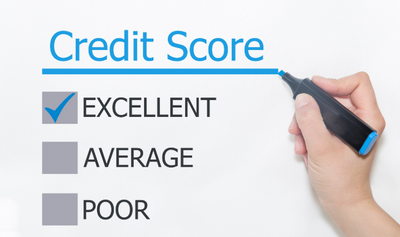Credit Services Organizations Bond Claims Guide
Estimated Read Time: 6 minutes10-18-2021

Credit Service or Credit Repair Organizations in many states are required to carry a surety bond as a state-mandated consumer protection tool. The buyers of credit repair services can file a claim on the surety bond if they are financially damaged by the credit repair company and are not compensated for the damages by the Credit Services Organizations (CSO). Interesting how those who have financially damaged their lenders can now go after another organization for financial damage—how the tables have turned.
Jet Insurance Company, as the surety bond provider, is set with the dual task of (1) providing a financial safeguard for the benefit of the public and (2) servicing the Credit Service Organization throughout the lifespan of the bond. So, let’s break down the bond claim process and how to avoid them.
Staying Out of Trouble
Avoiding disciplinary action is the best way to steer clear of having a claim placed on a Credit Service Organization’s bond. Below are the rules to follow, who can file a claim, when a claim can be made, and how much a claim can be made for.
Credit Services Organization Prohibited Acts
Any one of these acts can lead to a complaint or lawsuit against a credit service organization:
- Charge a fee before any service is fulfilled. In Florida and Texas, you may charge for services prior to completion of the contract with a surety bond in place.
- Charge a fee for a service that is already free to the public
- Claim a derogatory credit line can be removed
- Offer extension credit regardless of credit history
- Make false statements, commit fraud, or deceive clients on services performed
- Make false statements to the consumer reporting agencies, potential creditors, or former creditors
- Submit a dispute to a credit reporting agency without clients’ knowledge
Who Can Make a Bond Claim Against a Credit Services Organization?
The client/buyer of the Credit Service Company can make a claim against the surety bond held by Jet Insurance Company. If the need arises, the State can make a claim for the benefit of the damaged individual.
When Can a Bond Claim Be Made to Jet?
It goes without saying—which means I am going to say it anyways—financial damages must have occurred to the buyer before a claim can be made. The burden of proof is with the buyer.
In some states, like Ohio and Texas, there is a two-year tail on the bond upon which a claim can be made. This means once the Credit Service Organization has completed its service, the buyer still has two years to file a claim. After that, no claim can be made.
How Much Bond Coverage Is Provided?
At the outset of the bond purchase by the Credit Services Organization, a bond limit or penal sum is set by State regulations or by the State regulator on a case-by-case basis. The bond limits vary ranging from $10,000 to $100,000. In no case can a single claim or the aggregate or multiple claims exceed this bond limit amount.
Credit Services Organization Bond Claim Process

Not all actions taken against a Credit Services Organization follow that same path, let alone end in a bond claim. Here is one example of possible twists and turns that can occur.
Where a Complaint First Goes
Let’s say Carl’s Credit Repair contracts with Emmy Extravaganzi to help her rebuild her sub-500 credit, so she can buy a home in the future. Carl has Emmy pay his entire fee upfront. A week goes by and a new Hermès handbag becomes available; uh-oh, Emmy needs some extra cash. She now requests cancellation for Carl’s service and a refund. At this point, Carl can refund Emmy, but he does not and this leads to problems.
Complaints will typically go directly to the Credit Service Organization and this is where the whole thing should end. An error, oversight, or even downright fraud can be corrected by making amends.
The buyer can also go directly to the local county court, the state regulatory agency overseeing the credit repair company, or to Jet Insurance Company. Hopefully, enough of a relationship exists that the buyer doesn’t go behind the credit servicer’s back, but it is a possibility.
Investigation From Different Angles
Carl makes the decision to ignore Emmy, so she files a claim at the County Court. The Court researches the law surrounding Credit Services Organizations and requires Emmy to provide sufficient evidence to back her claim.
If Emmy had taken her claim to the State regulatory agency or Jet, the process to investigate would be similar to the Court. As with the Court, the burden of proof is on the complainant. Jet will go above and beyond public servants in our attempt to guide the Credit Service Organization through the process.
Jet wants the truth to come forward and we work towards that goal. Not to say the court or state breeds indifferent and—perhaps even—resentful people, but their incentive is not for the benefit of the Credit Service Organization.
Judgment
The Court determines that the evidence provided by Emmy is sufficient: Carl has broken State statutes governing Credit Services Organizations by unlawfully charging for services upfront. Carl receives a written order demanding that he reimburse Emmy her owed payment and legal fees in pursuit of the matter. Also, he gets a bill from the Court for their costs.
States vary on what damages can be placed on a claim. At a minimum, damages are equal to what the client paid the Credit Service Organization. Most often, attorney fees can be included and, in some cases, court and punitive damages can be added onto the judgment. When Jet makes the judgment on a claim outside the regulator’s process, we have to follow the same legislative rules.
Recovery and Indemnification
Carl takes notice of the court’s written order, but knowing of Emmy’s character, believes himself to be on the right side of this issue. Carl refuses to follow the Court’s order. Emmy is screwed, right?
Enter the surety bond, which is Jet Insurance Company’s promise to protect the public from Carl’s inability to follow State statutes and act ethically. Jet is notified of the Court’s decision, checks for any evidence of malfeasance, and pays Emmy for her damages.
Carl might think he is off the hook at this point, but as you can see, he never atoned for the damages he caused. Surety bonds (and this is true for all bonds, with all surety carriers) can only be offered with the Credit Service Organization’s indemnification. Meaning Carl must pay Jet Insurance Company back to continue as a Credit Services Organization or find another surety company.
However, it may be difficult to find another surety carrier. Consider a person looking to get auto coverage with three DUI’s on record, it is going to be tough if not impossible. The good news is Jet will work with Carl to make the indemnification process smooth and affordable. That way, the bond can be “refilled” and active again so Carl can continue as a licensed Credit Services Organization.
Each State’s laws vary slightly, so it is best to read up on these procedures for the State(s) regulating your business.
| Bond Information | Legislative Documents |
|---|---|
| Florida | FL State Senate Statutes |
| North Carolina | NC General Statutes |
| Nevada | NV Revised Statutes |
| Ohio | OH Laws & Administrative Rules |
| Texas | TX Finance Code |


